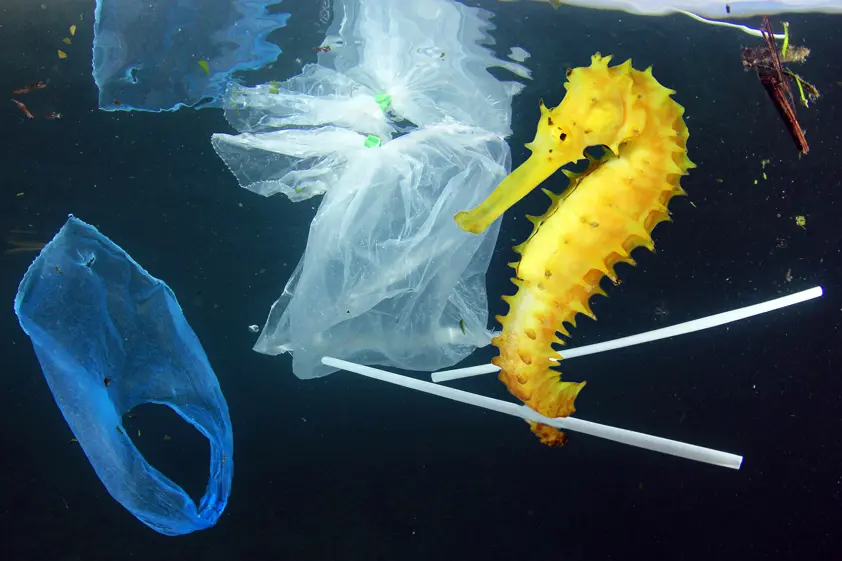A tiny seahorse clinging to a pink cotton bud, a sea turtle strangled by a plastic fishing cord… Disturbing images of the amount of plastic in our oceans have circulated in the media during the past few years. According to a report by the World Economic Forum there will be more plastic in our oceans than fish by 2050 – unless something in our lifestyle changes.
The EU has stepped up the fight against plastic. Action started already a few years ago with successful reduction of the consumption of plastic bags. Now the European Parliament has voted in favour of banning 10 types of single-use plastic items and fishing gear from the EU market from 2021. The drafting of the Directive was led by the Liberal rapporteur and Member of the European Parliament Frédérique Ries.
“This is essential for the planet, and this is what the millions of Europeans who watch us and are ready to consume differently are asking us to do,” says the MEP from Belgium.
“The new plan will reduce the environmental damage bill by EUR 22 billion, which is the cost of plastic pollution in Europe until 2030. What is great is that alternatives to these single-use plastic items do exist, they are cheap, and most are made in Europe.”
Alternative materials
The EU plastic strategy also outlines that consumption of several other plastic items, for which there are currently no alternative materials, must be reduced by at least a quarter by 2023. These items are single-use fast food boxes and food containers for fruits and vegetables. The market for alternative materials is expected to grow to EUR 1.5 billion, as estimated by Nasdaq.
Senior Scientist Heidi Peltola works at the VTT Technical Research Centre of Finland and specializes in biopolymers, biocomposites and their processing.
“Cellulosic fibres as biocomposite reinforcements can provide a natural look and feel with improved properties and sustainability and can reach full bio-based content depending on the selected plastic material,” she says.
“In addition to biocomposites, cellulose presents wide opportunities to replace plastic. Cellulose-based materials are promising candidates as so-called ‘second generation’ feedstock for bioplastic production.”
The EU has invested already over EUR 250 million to finance research on replacements for plastics through the Horizon 2020 programme. In the coming two years an additional EUR 100 million will be allocated to develop smarter and more recyclable plastic materials. The EU Commission estimates the single-use plastic ban could create 30,000 new jobs due to the increase in the need for innovations.
Setting a global example
European legislation has been applauded around the world. Katherine Gaschk is a Research Masters’ candidate from Murdoch University in Perth, Australia, focusing on waste management research.
“Ultimately it is human behaviour that is responsible for plastic pollution. Removing plastics will certainly help to reduce pollution, but there is also a need to educate retailers, consumers and manufacturers about the impacts of plastic pollution and how we can reduce our dependence on plastics.”
In the future, many everyday plastic items we use out of habit might be replaced by materials made from natural sources. But in the end the most significant change to solve the marine litter crisis might happen in our behaviour. When consumer interest in sustainable alternatives to plastics rises, the technologies will follow.
Text: Anna Gustafsson

